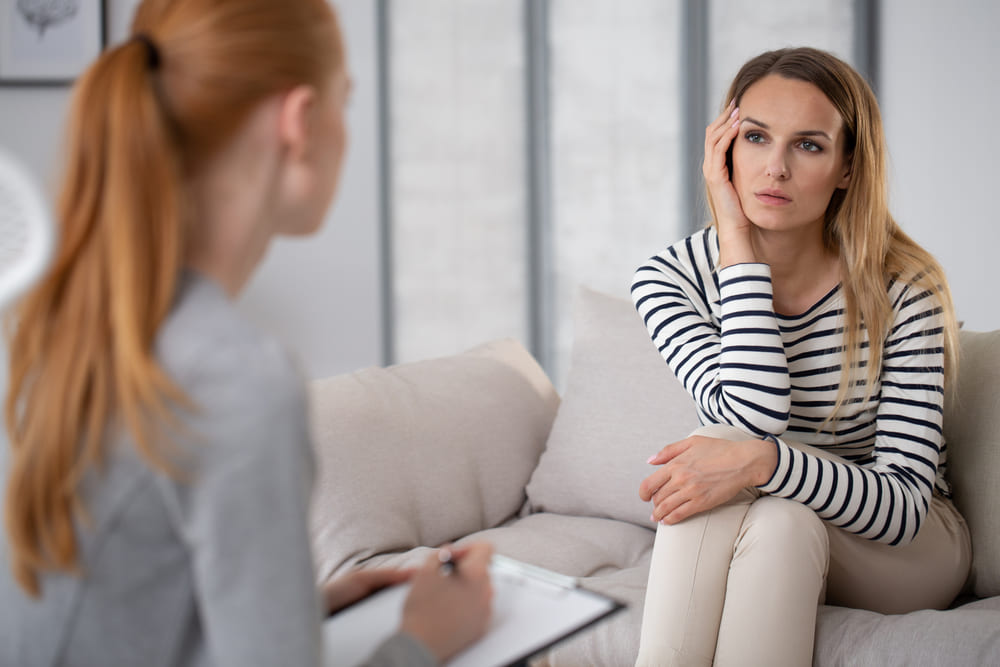- Jay Schiff
- 0 Comments
Best Options for OCD Treatment without Medication
OCD is a debilitating condition affecting millions of people worldwide. It can be a complex disorder to manage, with many sufferers feeling like they are ‘stuck’ in their thought patterns. Fortunately, there are several treatments available for those with OCD. This article will guide you through your options if you wish to seek OCD treatment without medication.
What is OCD?
Obsessive-compulsive disorder (OCD) is a mental illness marked by recurrent, intrusive thoughts, feelings, or sensations (obsessions) that cause the patient to feel compelled to engage in repetitive behavioral or mental activities (compulsions). These actions are frequently used to lessen the tension brought on by the obsessions. Obsessions sometimes manifest as fears of germs or contamination, danger to oneself or others, or an obsessive preoccupation with symmetry or order. On the other hand, compulsions are frequently seen in cleaning excessively or counting, checking, and repeating particular words or phrases.
Symptoms
In order to treat the condition, it is important to recognize its symptoms so you can obtain help accordingly. Some common symptoms of OCD include:
-
- Having intrusive, unwanted, and obsessive thoughts.
- Engaging in repetitive behaviors or rituals in an attempt to reduce anxiety.
- Feeling overwhelmed by certain situations.
- Worrying excessively about contamination, germs, or dirt.
- Having perfectionistic tendencies and being overly critical of oneself.
- Engaging in compulsive hoarding.
- Avoidance behaviors, such as avoiding certain places or situations that trigger obsessions.
- Difficulty concentrating or completing tasks.
- Intense anxiety or distress.
- Depression or low mood
- Impairment in daily functioning

Causes
The exact causes of OCD are not fully understood, but it is believed to involve a combination of genetic, neurobiological, and environmental factors. Other possible causes are:
-
- Abnormalities in brain structure or function, particularly in the areas of the brain involved in mood regulation, decision-making, and impulse control.
-
- Abnormal levels of certain neurotransmitters (chemical messengers in the brain)
-
- Family history of OCD or other mental health disorders
-
- Exposure to stressful or traumatic events
-
- Infections or illnesses that affect the brain
People with OCD may also have other mental health conditions, such as depression, anxiety disorder, or tic disorders, that can further exacerbate their condition.
Reasons For Avoiding OCD Medication
Even though medication has proven successful in treating OCD, many people refrain from using drugs to cure the condition. This may be due to the following reasons:
Stigma
A stigma around mental health keeps many people from obtaining help for their disorders. They may feel ashamed about taking medication for a mental disorder like OCD, even if they have been prescribed one.
Personal Beliefs
Many people have personal beliefs or values that conflict with taking medication, such as a preference for natural remedies or a belief that they should be able to manage their symptoms without the help of drugs.
Fear Of Addiction
When used over an extended period, several medications can lead to dependency and addiction. Patients who fear this may feel treating OCD without medication is the better approach.
Not Wanting To Change Their Brain Chemistry
The long-term use of medication can change the way our brains function. Some individuals may hesitate due to this reason, preferring to explore other drug-free options to manage their symptoms.

Side Effects
The most widely-used treatments for OCD include antidepressants, anti-anxiety, and antipsychotic medications. Some people may experience side effects from taking these medications, which can be uncomfortable and impact their quality of life. These side effects can include:
-
- Nausea, diarrhea, constipation, headaches, drowsiness, insomnia, agitation, and sexual dysfunction are associated with antidepressants.
-
- Anti-anxiety medication (Benzodiazepines) may cause drowsiness, dizziness, fatigue, confusion, memory problems, and physical dependence with long-term use.
-
- Antipsychotics may result in drowsiness, dry mouth, blurred vision, constipation, weight gain, and risk of diabetes and metabolic problems.
OCD Treatment Without Medication
Can OCD be treated without medication? A growing trend in the mental health community is the use of non-traditional approaches to treat Obsessive Compulsive Disorder (OCD). This approach focuses on cognitive and behavioral therapies to help those with OCD manage their symptoms without using medications. While medication may still be prescribed in some cases, these newer approaches may be the preferred route as there are no known side effects associated with these treatments, and they can be completed in the comfort of one’s own home.
How To Treat OCD Without Medication?
Some well-known ways to treat OCD without medication are:
Cognitive Behavioral Therapy (CBT)
CBT is a type of psychotherapy that focuses on helping individuals identify and change negative thought patterns and behaviors. It is one of the most well-researched and effective treatments for OCD, based on the idea that the person’s thoughts and beliefs maintain the symptoms of OCD.
Exposure And Response Prevention (ERP)
ERP therapy is based on the principle of habituation, which states that with repeated exposure to a feared object or situation, the fear and anxiety associated with it will decrease. Individuals are gradually exposed to the situations and objects that trigger their obsessive thoughts and compulsive behaviors in a controlled environment while not engaging in their compulsive behaviors. This helps them to learn that the feared consequences of not engaging in compulsive behaviors do not occur, decreasing their anxiety over time.
Mindfulness-Based Therapies
These therapies focus on helping individuals become more aware of their thoughts and feelings in the present moment without judgment. Mindfulness-based therapies can help people with OCD better manage their symptoms by focusing on the present moment and detaching from their obsessions and compulsions.
Transcranial Magnetic Stimulation (TMS)
TMS is a non-invasive procedure that uses magnetic fields to stimulate nerve cells in the brain. TMS is effective in reducing the symptoms of OCD, particularly when other treatment options have failed. It works by targeting the areas of the brain that are thought to be involved in the symptoms of OCD and modulating the activity of these areas.

Psychodynamic Therapy
This therapy is based on the idea that the symptoms of OCD are rooted in unresolved conflicts, traumas, or unconscious wishes. The individual can overcome their symptoms by exploring these unconscious motives and understanding the underlying causes.
Are Non-Medication Treatments For OCD Effective?
The success of CBT, TMS, ERP, Mindfulness, and Psychodynamic therapy at treating OCD without medication heavily relies on the fact that they focus on targeting the root of the problem; the underlying thoughts and behaviors that maintain OCD, helping you develop new ways of thinking and behaving that can reduce your symptoms and improve your quality of life. They can be as effective as medication in treating OCD, with no side effects.
People suffering from OCD may experience a vast range of symptoms, from an obsession for cleanliness to severe depression. Recognizing the signs of OCD and obtaining professional treatment as soon as possible is therefore essential. If you are apprehensive about taking medication for OCD due to potential stigma, long-term adverse effects, or personal beliefs, avail yourself the alternative treatments for OCD that can help change your life for the better. Don’t let fear of medication be a barrier to receiving the treatment you deserve!
